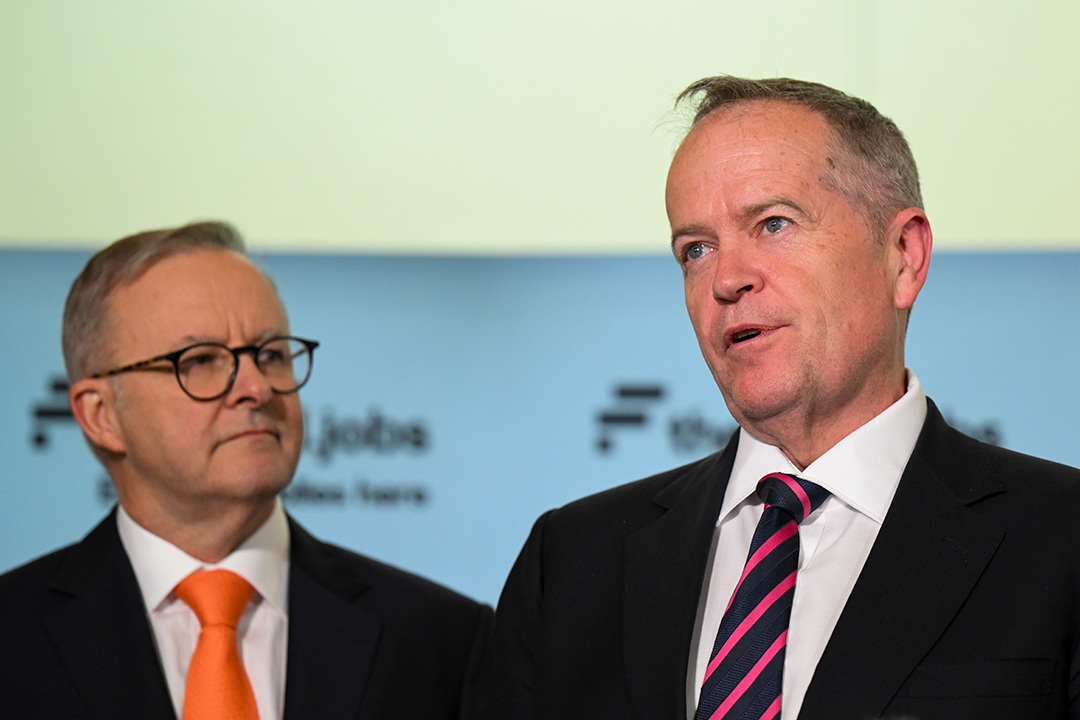

The lead report in the AFR today underlines how likely it is that the Albanese government will use the big budget deficit coming out of the Covid lockdowns to start rifling retirees’ super funds. However, Albo has to be careful that he doesn’t fall into the same trap Bill Shorten fell into in the May 2018 election.
Bill Shorten wanted to reduce the access of retirees to the income-raising benefits of franking credits and in the last Budget in October, Treasurer Jim Chalmers took away the tax benefits of buybacks that really favour those paying low or no tax, which takes in a lot of retirees with self-managed super funds (SMSFs).
In recent weeks, the AFR told us that the Government was considering putting a $5 million limit on what someone could have in super, which would hit 11,000 Aussies and raise over a billion dollars for Treasury!
But this looks like only the tip of the iceberg coming for retirees enjoying tax breaks to make life comfortable.
Super now is valued around $3.3 trillion but the AFR’s John Kehoe reminds us that it hasn’t helped to drastically reduce the number of Aussies on a government-provided pension.
He says about 70% of those aged 65 or over access the pension and by 2062 he says 62% of that group will be on the pension. Of course, this isn’t the full pension as a big number of retirees get a part-pension.
But this story gets scarier for retirees when the AFR’s economics editor suggests that things would be different if those on the pension had to include their home in the assets test.
As Kehoe writes and you can bet he has talked to Government ministers on the subject: “Part of the problem is that retirees living in multi-million-dollar homes can be eligible for the full or part age pension.
And given what he suggests, it’s likely that Labor is toying with ruling out those living in $2 million plus homes could be forced to include their homes in the asset test for a pension.
Kehoe informs us that super tax breaks will actually cost the Government more than what the age pension will need by 2050!
What we will see in coming months and before next May’s Budget will be debates about whether the cap om how much money we can have in total super should be $5 million, $3 million or $2 million.
Why would the Government want to do this? Well, if your super money can’t be in the tax-advantaged super fund, then it will be invested somewhere with a much higher tax rate applying.
Right now someone in super is tax free on earnings in pension accounts. If they have money in a super account in accumulation mode, they pay 15% on any earnings with such an account. However, with franking credits, Kehoe says some retirees have a negative tax rate!
There are many arguments for a concessional tax rate on super, given the fact that Government takes away our money and forces us to save in super, when others would prefer to buy houses and other capital gaining assets. But economists think the 0% tax rate is too generous.
Clearly, Labor knows a lot of the people who could be affected by changes to super taxation and pension asset tests will hit voters who probably are Coalition voters but Albo has to be aware of what I call the Bill’s balls up trap.
Ahead of the 2018 election I wrote a story headlined as: “Sorry kids, Bill wants to wipe out your inheritance!” This was one of the biggest downloaded stories I ever wrote and it showed how many younger-than-retirees people have an eye on what they’re parents and grandparents live on and what they, one day may leave them.
And those badly affected by any Labor plans to slug super and home ownership will have an army of complainants who will be doing a lot of bad PR for Albo if the assault on retirees’ incomes is seen as too tough.
Be clear on this: our Government and future ones have a deficit problem and there will be pressure for all generous tax concessions for individuals and businesses to be reassessed. And it won’t be just an Australian problem — the world has a budget deficit drama, thanks to some bats and snakes in China — and taxes will be going higher, governments’ spending will be cut and concessions will be reduced in coming years.
And these will be the prices we pay for dodging a Great Depression in 2020, the year we first heard about something called the Coronavirus.